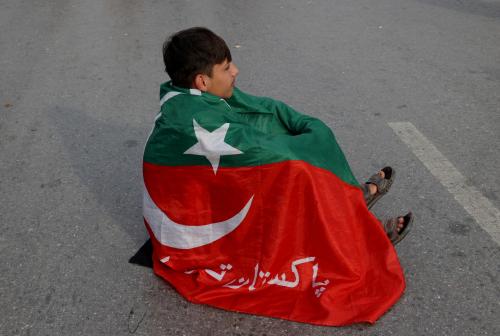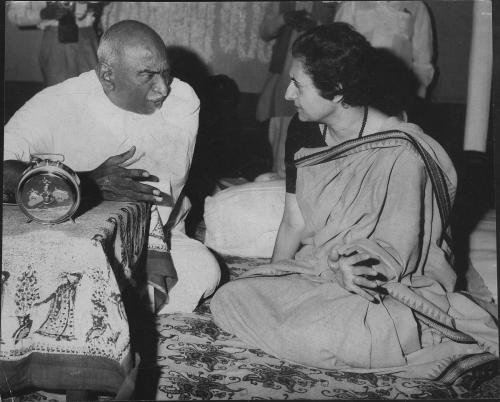“We have earned the right to stay [in Afghanistan],” said Senior Fellow Michael O’Hanlon at a recent Center for 21st Century Security and Intelligence (21CSI) at Brookings event, “based on the sacrifice of men and women like those in uniform, like those on this panel, and we should want to benefit from all that investment and forge what I would describe as an enduring partnership with Afghanistan to keep limited numbers of American military forces there indefinitely.”
His remarks came during a discussion with other experts to assess the current state and future of Afghanistan, six months after the end of the U.S. and NATO mission there and nine months into the administration of Ashraf Ghani-Abdullah Abdullah.
In his remarks, former U.S. Ambassador to Afghanistan James Cunningham, now a senior fellow at the Atlantic Council, focused on the “real success” that Afghanistan made last year in its first peaceful transition of presidential power from the Karzai government to one shared between President Ghani and CEO Abdullah. However, Amb. Cunningham emphasized the difficulty of reform and change. The two leaders, he said, “need some time and space to be able to get the government up and running and functioning and to start delivering. And that’s where the role of the United States and the international community is critical.” He continued that:
We need, in our own interest by the way, to provide them the time and space that they need to see if this experiment in Afghan governance can be broadened to being fully and to work, and they need on their part to be delivering. They need to produce results. They need to show not just intent and rhetoric but they need to show that things are actually happening on the ground for their own people and happening in terms of taking on the responsibility that they acknowledge they have for making Afghanistan function and for providing security to the Afghan people.
Vanda Felbab-Brown, a Brookings senior fellow and author of “Blood and hope in Afghanistan: A June 2015 update,” said that “the Afghan people are really frustrated with the government’s paralysis,” now and previous to the current government that formed last September. “Line ministries have essentially not been functioning … provincial development councils, as problematic as they are, have stopped functioning. So in many areas local governance is simply not taking place at all,” she explained.
Felbab-Brown also pointed to the interrelated economic and security problems facing Afghanistan, observing that “Violence has been so much more intense than many had anticipated, with the Afghan forces really struggling. The violence is discouraging any form of investment and economic pickup.”
Looking ahead, Felbab-Brown pointed to “to very important governance issues that impact on the political space”:
and those are the … parliamentary and district elections, and the Loya Jirga. Both are very important because they will really influence the political space for maneuvering that both men [Ghani and Abdullah] have. But they will also impinge on any political space toward negotiations with the Taliban and for the outreach with Pakistan.
David Sedney, also a scholar at the Atlantic Council, spoke of three myths when considering Afghanistan, and was also highly critical of the Obama administration’s policy toward the country. The first myth, that the war has ended, is countered by increased causalities among Afghan security forces and civilians. “More afghan civilians are dying today,” Sedney said,” that at any time since we intervened in 2001.”
The second myth concerns Pakistan’s cooperation with Afghanistan and the U.S. in fighting the Taliban. Sedney argued that President Ghani had no choice but to try to work with Pakistan, but that “command and control of the Taliban continues to come from Pakistan.”
The third myth, according to Sedney, is the myth of failure. The Afghan military continues to fight, he said, and has a functioning national mission. “I am not concerned,” he said, “that Afghanistan is going to fall apart today or tomorrow.”
But I am concerned that a lack of political commitment on the part of the United States, and a lack of a commitment post-2016 to Afghanistan’s military and security services will lay the groundwork for a gradual increase in the effectiveness of the Taliban so that just as when we left Afghanistan in 1989, it wasn’t until 2001, twelve years later, that we felt the impact. The bad decisions that we’ve made already and that we continue to make in our policy here in Washington could come back to haunt us 10 or 15 years later. We shouldn’t be in a position 10 years from now of having to respond to a crisis that we have created.
O’Hanlon, who holds the Sydney Stein, Jr. Chair in International Security and is co-director of the Center for 21st Century Security and Intelligence, added his views that, first, we need to keep expectations of any peace talks with the Taliban very low, because the Taliban has never shown any desire to participate in a democratic process. Second, O’Hanlon explained why the United States should not completely pull out militarily, and what the alternative is. “It’s less important that we zero out our presence,” he said. Instead:
It’s much more important that Afghanistan remain at least a fragile success, that terrorist strikes from that part of the world not again occur on American soil, and that we have the tools to make sure that the odds of that are as low as possible.
Militarily speaking what I would advocate is not just the one base … but I would advocate three or four operational bases that NATO would continue to maintain after 2016 with a principle eye toward coordination with Afghan security forces, providing some of the ongoing training that we do now in Kabul … providing some occasional intel and air support, and also, and here is the bottom line for American security, being able to carry out counterterrorism strikes against al Qaeda or even ISIL targets that may present themselves in South Asia because there is no other place from which plausibly to do it. …
You can’t do drone strikes or commando strikes from anywhere in the Pashtun belt unless you are in eastern Afghanistan. There is just no other credible place. So we are there right now. We have earned the right to stay there based on the sacrifice of men and women like those in uniform, like those on this panel, and we should want to benefit from all that investment and forge what I would describe as an enduring partnership with Afghanistan to keep limited numbers of American military forces there indefinitely. …
We should stay there as long as we need the assets to protect our country.
Visit the event’s web page to get a transcript. Also, download Felbab-Brown’s new report, “Blood and hope in Afghanistan: A June 2015 update.”



Commentary
Michael O’Hanlon: keep limited U.S. forces in Afghanistan indefinitely
June 8, 2015